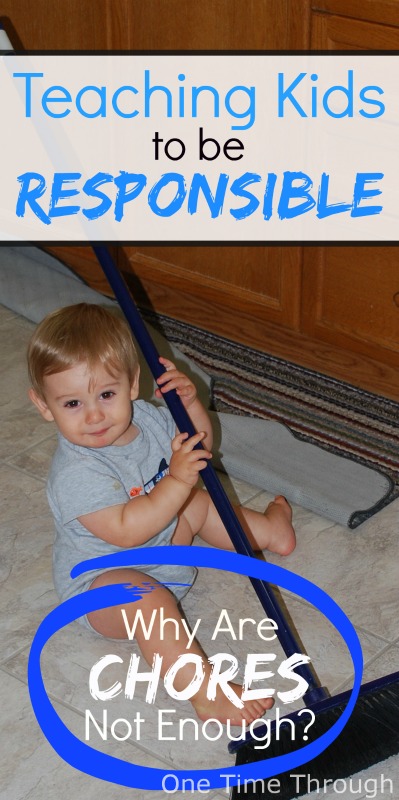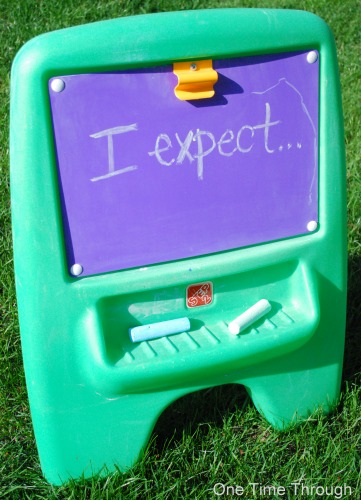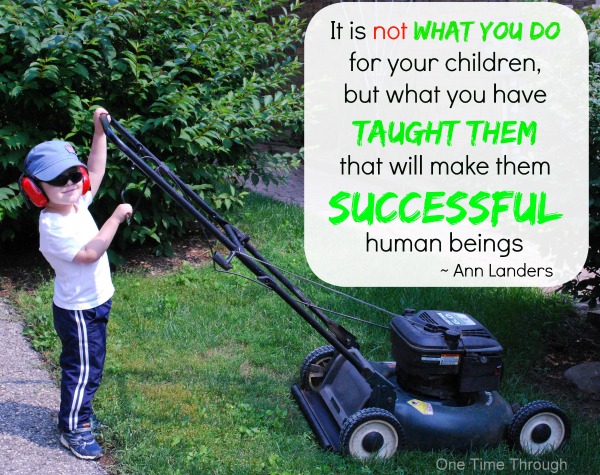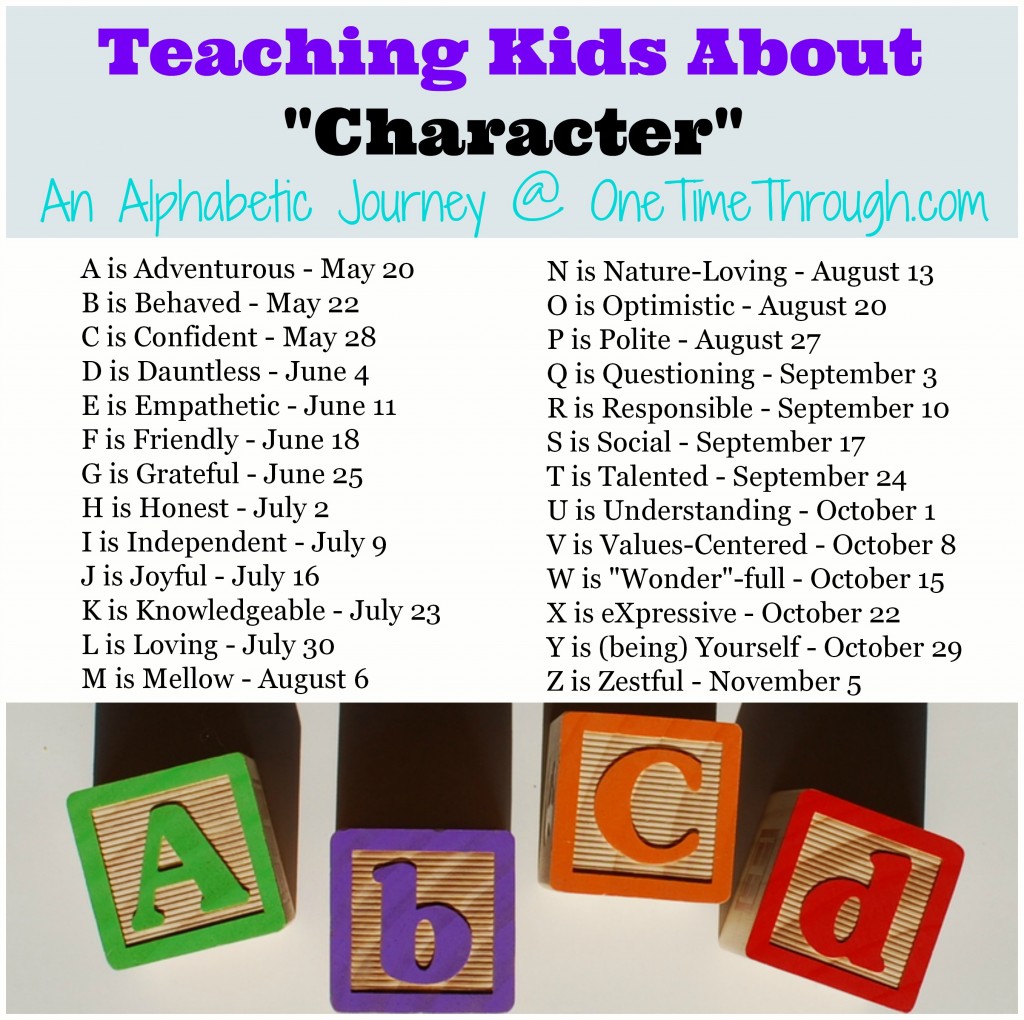What comes to mind when you think of the words “Responsibility” and “Kids”? To me, a responsible child is able to do many things independently, without many (or any!) reminders. It also means that they are doing these things because it’s the right thing to do – not for any reward.
And I definitely think that there is so much more to teaching our kids to be responsible, than just giving them chores to do (although that’s a good start!)

*This post contains Amazon Affiliates Links. Please see our full Disclosure Policy here.
1) EXPECT Responsibility
If we expect our kids to do chores, clean up after themselves, and help out around the house, it will become a habit as they grow up. Sometimes I think this is easier in larger families where everyone needs to pull their share for the household to function.
When you just have one child, like I do, sometimes it seems easier to just do things for them like clean up their toys, or dress them quickly. In fact, I constantly have to fight this urge myself. But I keep reminding myself, of this terrific Ann Landers quote I saw on Pinterest lately, “It is not what you do for your children, but what you have taught them to do themselves that will make them successful human beings.”
When my son balks at cleaning up his toys, or his messes, I use the handy phrases from How to Talk So Kids Will Listen & Listen So Kids Will Talk: “In this house, we each clean up our own messes/toys/etc. I EXPECT you to put these [fill in the blanks] away before moving on to [the next activity].”

Do you see how the first and second questions communicate that cleaning up his own mess is his responsibility, while the third question makes it sound like it’s my job to clean up his mess and he is helping me! See the difference?
2) Give Your Child Opportunities to PRACTISE Responsibility
There are so many great articles out there on how important it is to give our kids chores to do, and what kinds of chores kids can do at certain ages, so I won’t cover that here. If you’re looking for these kinds of ideas, be sure to follow our Teaching Kids Responsibility pinterest board at: Follow One Time Through’s board Teaching Kids Responsibility on Pinterest.
I think the important point here is that we allow our kids to practise doing things on their own. Don’t get me wrong…chores can be a great way to get kids to practise being responsible, but we can think outside the traditional chore box too.
My 3 year old is responsible for vacuuming up the dead plant leaves every week (that probably doesn’t say a lot about my ability to grow indoor plants!), helping to dust, and we’re just working on sorting clothes for the wash together, and matching clean socks after they are washed. These could all be considered traditional chores.
But, I also ask my son to help wash vegetables for dinner, and set the table (when I give him one instruction at a time. Eg. Go put these forks at each setting. Now go put these spoons at each place. etc.) And, I’m also training him to bring his dinner plate over to the sink after he’s done eating. All of these little tasks are teaching him skills that he will need to do himself at some point, but would not necessarily be considered “chores.”
If you find yourself doing too many things for your kids (like I did at one point), it might help to sit back and reflect a bit on your day and ask yourself what small things they can do without you.
Would it really hurt for your child to pour themselves a glass of milk? What’s the worst thing that can happen?
Start with those little tasks, even if they take longer for your child to do than you, and even if they don’t do them nearly as well as you could. It’s a start to them developing their own sense of being capable and responsible.
For more ideas on encouraging kids to be independent, be sure to check out the I is for Independent post!
 3) Let Them Develop Their OWN Sense of Responsibility
3) Let Them Develop Their OWN Sense of Responsibility
When kids feel like they have come up with the idea to do something themselves, they are more likely to do it. (This is also true of men!) Instead of nagging your child to clean up the toys, or to do their weekly dusting chore, describe the problem and sit back and watch while they solve it!
For example, if there’s a bunch of unused toys strewn all over the living room floor and it’s getting close to bedtime, you could say something like, “It’s getting close to bedtime, and I see trucks all over the floor.” Or, “I can see some dust on the tables today.”
If drawing your child’s attention to the problem doesn’t get some action, try giving some information about the problem. For example, you could say, “If the toys are left out, someone might step on them and hurt themselves.” Or, “I start to get sneezy when the dust gets thick on the furniture.“
And lastly, if those don’t work, try expressing your feelings. For example, you could say, “I really like the living room to be clean at the end of each day. It makes me feel calm and organized.” Or, “I really don’t like it when the house looks dusty and dirty.“
All 3 of these ways communicate to your child that you would like them to DO something. Without nagging or commanding them to do something, you’re more likely to get their cooperation.
4) Catch Them Being Responsible and LABEL IT

When you label their actions as responsible, and show your approval, your child internally praises themselves for their actions. In other words, they tell themselves that they are responsible and that they did well! They are much more likely to repeat these actions, and they start to develop an understanding of what responsibility IS.
To keep following our alphabetic journey – please visit our Teaching Kids About Character page.
To responsible, capable, dependable kids (all without nagging or bribes!),


